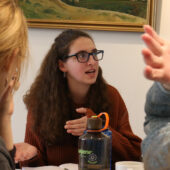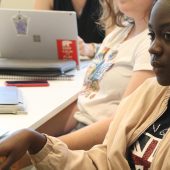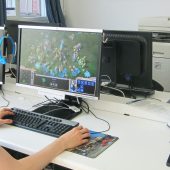Brain and Behavior
How do neurons communicate with each other? What controls how we sense the environment around us and how we move in response? What role do hormones play in our behavior? Why do animals sleep? How does…
How do neurons communicate with each other? What controls how we sense the environment around us and how we move in response? What role do hormones play in our behavior? Why do animals sleep? How does…
To err is human. Although mistakes are inevitable, how we perceive and approach failures can help us transform them into beautiful mistakes. But what are the intrapersonal and interpersonal psychological factors that support or hinder learning…

What are the neural and cognitive mechanisms underlying meditation and yoga? How do yoga and meditation allow us to explore the depths of consciousness and improve our mental and physical health? Although these practices have increased…
What is loneliness and what causes it? Is it the nature of our human condition? Is it a feeling or a thought? Does age, personality, or social contact matter? Topics to be considered are the causes…
While young Danes continue to be the heaviest drinkers in Europe, high levels of drinking and problematic drug use amongst teens and young adults present a significant global health burden. In this course, you will assess…
This course explores maladaptive behaviors, cognitions, and emotions in child development using the biopsychosocial model. This model addresses the multilayered and hierarchical contexts of the child’s life by considering multiple perspectives as regards the genetic, psychological,…

This course introduces you to the common mental disorders and their impact on daily life. We explore the different challenges faced by those with mental health conditions. Through peer-reviewed literature, policy briefs, popular media, and discussions…

Despite decades of scientific research and centuries of philosophical analysis, consciousness remains one of the greatest scientific challenges of our time. What is consciousness and which brain mechanisms shape the unique sense of self, implicit in…

At the Games & Society Lab at Uppsala University, Joshua Juvrud takes an individualistic approach using psychological methods to better understand how different game players (with different personalities, traits, and experiences) interact with various game mechanics,…

How should we understand the psychology behind violence and hate? This course focuses on understanding the processes behind radicalization , including psychological perspectives on the role of motivation, ideology, identity, and risk factors. Characteristics and mechanisms…
